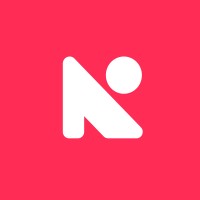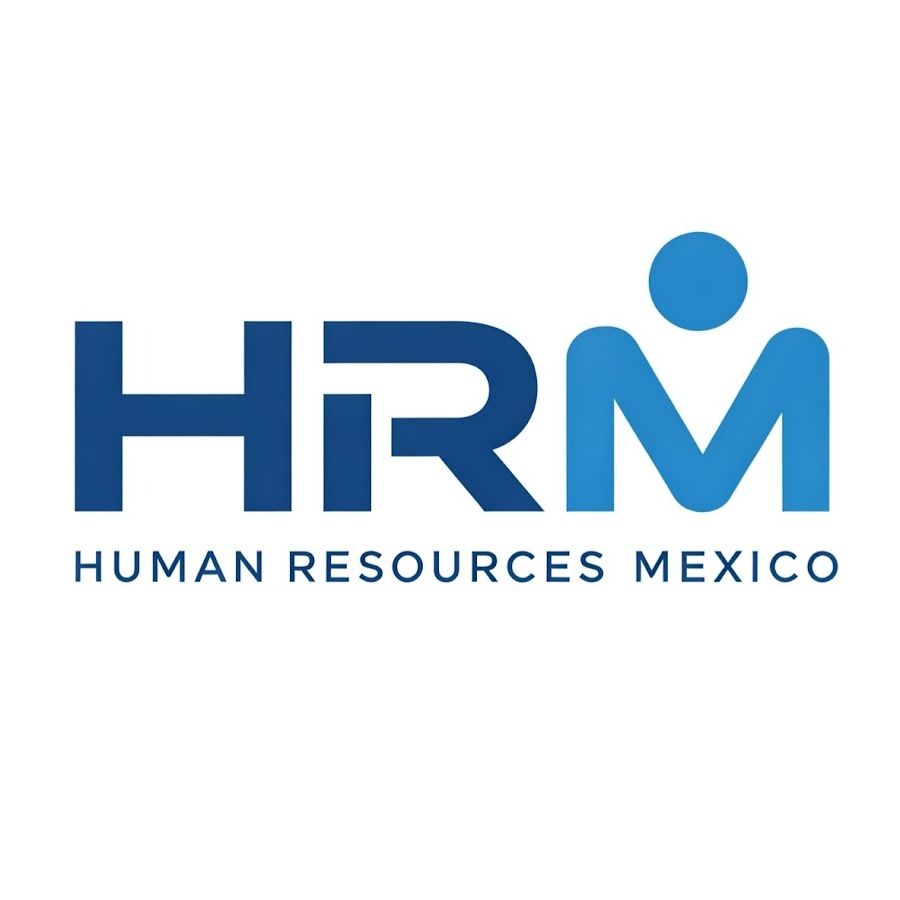Payroll software helps your in-house teams automate certain aspects of payroll processing, streamline employee data management, calculate taxes, and ensure compliance with various laws and regulations.
On the other hand, hiring payroll services is a reliable hands-off approach where dedicated professionals take care of all your payroll processes, while you focus on your core business functions.
In this article, we’ll help you decide the right approach for your business by explaining these payroll management approaches in more detail and outlining their main advantages and disadvantages for different use cases.
What is Payroll Software?
Payroll software is a solution offering a wide range of payroll features that empower businesses to manage payroll themselves.
It automates the bulk of payroll functions for your HR teams, helping them manage payroll while tracking employee work hours, calculating taxes, or ensuring legal compliance.
It eliminates the need for hiring dedicated payroll processing staff and can reduce the cost of managing in-house payroll.
This is why the global payroll software market size is projected to grow from $8.1 billion by the end of 2024 to almost $19 billion by 2032

Key Payroll Software Features
Here are some of the core features found on all of the best payroll software:
- Salary calculations and payments
- Payroll automation
- Managing payroll for multiple employee types
- Local, state, and federal tax filing and deductions
- Documentation and data entry
- Tracking work hours
- Employee benefits administration
- Direct deposits to employee bank accounts
- Efficient employee onboarding and offboarding
There’s intense competition in the payroll software industry where companies are constantly innovating to offer new features to grow their market share.
For example, beyond basic payroll functions, modern payroll software can integrate with a company’s existing HR tech stack, such as time and attendance tools and employee databases.
However, we’ll focus on the core features you’ll find in almost every modern payroll software in more detail below:
Payroll Calculation and Automation
Many companies still use spreadsheets, offline databases, and other unintegrated information sources to manage employee data.
As a result, processing payroll becomes a headache because you’d have to spend hours accumulating data, updating records, and ensuring everyone gets paid the right amount.
Payroll software resolves this problem by using automatic payroll workflows, eliminating paperwork, and ensuring every employee is paid accurately on time.
The best part? All this happens in seconds, saving you hundreds of man-hours every month.

Employee Time Tracking
It’s impossible to accurately process payroll without tracking employee work hours. This is why most payroll software either has built-in time-tracking features or integrates with other mainstream time and attendance software.
This allows the software to know exactly how many hours an employee has worked in a month and calculate their off-time, over-time, leaves, or early time-outs on a working day.
Gathering this data manually is a hassle.
With payroll software, you won’t even notice it because everything happens in the background and the software gives you accurate calculations instantly.
Employee Information Management
Payroll software enables accurate and centralized data management by managing your complete employee database which includes critical information such as their working hours, salary data, employment terms, and perks & benefits. This is particularly useful for enterprise payroll software users, whose database may include thousands of employees.
Both on-site and cloud payroll software gathers employee data from diverse sources within your organization. For example, if you have separate databases for employee salary details and attendance, payroll software can integrate with both and present it in a centralized dashboard.
This central information hub is the primary source of payroll software’s automation and efficiency. Your team's only job is to ensure they feed the right data to the payroll system.
Tax & Legal Compliance
Payroll software can automate payroll tax calculations. It can handle payments, withholding taxes, managing tax slabs, generating tax forms, and other complex tax-related tasks..
For example, let’s say your sales teams are hired on a salary plus commission structure. Their tax amount varies with payroll runs depending on their earned commissions.
Modern payroll software will process their taxes differently from a full-time employee on a fixed salary in your finance or administration departments.
Payments
Payment software not only calculates employee wages but also seamlessly processes payments.
Most mainstream payroll software supports bank transfers and payments to popular digital wallets. It can also print payment checks for employees or companies that prefer conventional methods.
Payroll software payments come in handy for companies with distributed teams or remote employees who require same-day payments.
They also reduce payment processing inefficiencies since there’s hardly any manual work involved and the wages are calculated based on employee data, work hours, and other relevant metrics.
Benefit Calculation
Payroll software simplifies managing employee benefits and additional financial perks. For example, most payroll tools can directly integrate with an employee’s 401(k) retirement savings plan provider.
It deducts their agreed contribution amount from their pre-tax salary and transmits it directly to the 401(k) provider for investment.
Employees can also withdraw their amounts, request loans, and manage their funds directly through the payroll software.
Similarly, payroll software companies often partner with insurance providers and offer exclusive deals to their customers. If a customer opts into a program, their contribution is automatically deposited from their salary and securely managed with the service provider.
Analytics & Reporting
Since all your employee data is already in your payroll software, you can check real-time analytics to know exactly where you’re spending money, how much you’re paying taxes, and the amount you’re investing in employee benefits.
The software can instantly create charts, tables, and dashboards helping you analyze critical payroll information from different angles.
This information will not only help you identify trends and optimize payroll practices but also enable you to determine if you’re getting a positive ROI.

Employee Interface
Using payroll software not only makes your payroll processes more transparent and efficient but also empowers your employees, allowing them greater control over their information and funds.
For example, most mainstream payroll tools have a separate employee self-service portal that your workers can access from their computers or mobile phones.
This drastically reduces your employees’ reliance on your in-house HR teams for minor tasks and makes them feel empowered. However, to ensure compliance, some apps allow employers to approve/disapprove the changes made by employees.
Payroll Software Pros and Cons
Payroll software saves time, improves efficiency, and elevates the standard of your overall payroll processes.
However, using these tools also has some drawbacks.
Some of the main advantages of using payroll software are ease of access, strong data security, affordability and customization:
Desktop and Mobile Access
Modern cloud payroll software has intuitive user interfaces and offers separate desktop and mobile apps. This allows you to update records, fetch payroll reports, or process payroll from anywhere.
Data Security And Privacy
Not everyone in your company can access your payroll software’s admin area where all your critical data is stored.
For example, employees typically get a personalized user interface where they can only manage their personal data.
In addition, modern payroll software (cloud or on-premises) follows cybersecurity best practices to ensure your data remains secure and inaccessible to any unauthorized users.
Affordability
Payroll software is much more affordable than specialized payroll consultants or managing an army of employees to manually handle payroll.
Most payroll tools charge a fixed monthly retainer plus additional fees for every authorized user.
This flexible pricing model means you can change the number of users as needed.
Customization
You can customize payroll software according to your business needs, employee types, payroll processes, and reporting requirements.
For example, payroll tools give you the option to process wages for different employee types, generate tailored reports, create function-specific dashboards, apply local and international tax rates, and adjust payroll and benefits according to the applicable laws.
Despite all the features and benefits of payroll software, it comes with several drawbacks, such as an implementation learning curve, lack of support for complex functions, and potentially expensive recurring fees.
Learning Curve
Using payroll software isn’t rocket science. But there’s still a learning curve. Plus, shifting from manual payroll or outsourced services to in-house payroll software can be a hassle. So, you must plan the transition carefully to ensure your regular operations are not disrupted.
Lack Of Professional Support
Payroll software is great for low to mid-complexity payroll functions. However, it doesn’t offer personalized customer support in tax compliance or advanced payroll functions that an expert payroll professional can offer.
Recurring Software Fees
Most cloud-based payroll software charges a recurring monthly or annual fee for all the approved users in your organization.
While the flexibility can be advantageous, these costs can add up if you require access for a large number of users.
Should Your Business Buy Payroll Software?
Whether you should use payroll software or not depends on your company’s goals, workforce size & dynamics, budget limitations, privacy concerns, and other preferences.
Here are a few business types we believe would benefit from the flexibility, affordability, and features of a typical payroll software solution.
Startups And Small Businesses
Small business owners and startup founders may find payroll software the better option because of their limited workforce and straightforward payroll needs. Payroll software for small businesses are also more affordable and typically allow businesses to increase their users as they grow.

Companies With In-House HR Teams
If you already have a professional in-house HR team, using payroll software can make your payroll processes more efficient. It also allows you greater control over your employee data while giving you deeper insights into your payroll functions.
Businesses With Remote & Distributed Teams
Payroll software is ideal for businesses that employ freelancers, gig workers, contractors, or remote employees.
It allows you to set recurring and periodic payroll cycles and pay employees according to their agreed terms.
Plus, payroll software easily integrates with mainstream digital wallets allowing you to instantly pay your remote workers without any hassle.
What are Payroll Services?

Payroll services are specialized third-party companies that manage A to Z payroll functions for their client organizations.
They handle everything from employee data, contracts, and wage types to employee benefits, tax & legal compliance, and payroll processing.
Global Payroll Complexity Index, a survey report published in October 2021, shows that 61% of respondents have outsourced some or all their payroll operations. Key drivers for this were regulatory complexity (42%), corporate strategy for outsourcing (30%), cost reduction (27%), and to support mergers and acquisition (M&A) activities (15%).
More recent studies show that this upward trend will continue as the global payroll outsourcing market is expected to grow annually at 5.3% to exceed a market size of $12 billion by 2028.

Here’s what a payroll outsourcing service provider typically offers.
- Payroll processing
- Industry-specific payroll expertise
- Tax calculations and filing
- Personalized tax and legal support
- Detailed documentation
- Employee data management
- Wages and benefit management
- Analysis, insights, and reports
Hiring a payroll service is a hands-off approach that allows you to focus on your core business functions while the experts manage your company’s payroll needs.
Payroll services are typically more expensive than payroll software. However, they provide greater professional support, specifically to businesses in unique or complex industries with large and diverse workforces and changing payroll needs.
Key Features
Most payroll service providers use modern payroll software to simplify, automate, and accelerate their work. They combine it with their professional expertise and industry-specific knowledge to offer highly personalized services to their clients.
Let’s quickly discuss some of the main features you get with a payroll service provider and how they differ from DIY software.
Payroll Processing
A payroll outsourcing company manages the complete payroll process which typically includes calculating employee wages, salaries, bonuses, commissions, and other forms of compensation.
They do so based on your company’s time-tracking data, employee hours, employment terms, and other contracts.
They can get this data by integrating with your existing HR tools or requesting it from your HR staff as they need it.
Personalized Consultancy
Personalized consultancy and expert advice is the biggest difference between managed payroll outsourcing services and using payroll software with your in-house team.
When you work with a payroll service, they not only manage the operational side of payroll management but can also provide you with valuable strategic advice to improve payroll efficiency.
Many companies prefer working with industry-specific payroll services that understand the work dynamics, employment nature, and legal complexities of their sector.
Tax Filing & Legal Compliance
Payroll services employ legal experts who fully understand employment laws, tax structures, and documentation required for legal compliance.
They can help you calculate federal and local taxes applicable to your industry. They also assist in preparing and filing employee tax forms, such as W-2 and 1099 forms, at the end of the tax year.
Benefits Management
Payroll outsourcing services dedicatedly look after your employees’ benefit programs including health insurance, retirement plans, and other voluntary benefits.
They act as the bridge between your employees and benefit providers by deducting employee contributions from their paychecks and transferring them to the relevant funds on time.
Payroll companies usually have partnerships with different benefit providers and can help you strike more profitable deals for your workforce.
Payments & Deposits
Payment service companies can also handle traditional payment methods like paper checks and bank transfers along with alternate methods like digital wallets and electronic transfers.
After calculating employee wages, deducting taxes, and forwarding contributions to investment or savings funds, payroll companies can directly transfer employee salaries using their preferred payment methods.

Payroll Services Pros and Cons
Advantages of using payroll services include access to expert advice, fewer additional overheads and scalability.
Reliable Expert Services
Full-service payroll companies are experts in their fields with years of experience in handling all kinds of business scenarios. You can trust them to deliver the highest quality work on time. This saves you from the hassle of building and training an in-house payroll team.
No Additional Overheads Or Management Problems
Managing an in-house payroll team means additional overheads and management problems. Payroll is an administrative function for your company, not a profit center. So any resources you spend on establishing a payroll team would distract from your core business.
This is why outsourcing your payroll to a reliable service provider is a hands-off solution, especially for large organizations with diverse workforces.
Scalability
Payroll providers can easily allocate more resources as your business needs grow, making them a highly scalable option for fast-growing companies.
Despite these benefits, payroll services may require a higher initial investment and present data security risks.
Higher Initial Investment
Payroll service companies cost significantly more than using in-house payroll software. Most payroll service providers charge clients a fixed contract fee or a recurring fee on every payroll cycle.
For large organizations with thousands of employees, hiring payroll companies means spending a significant amount of money on purely administrative functions.
Data Security And Privacy Concerns
When you hire a payroll services company, they’ll need your employee data and other critical business information to process wages, file taxes, and advise you on different payroll-related functions.
Although most companies sign privacy agreements that forbid you from sharing your data with anyone, it’s still a risk to share such critical information with a third-party service provider.
A recent survey shows that a surprising 22% of businesses are using managed payroll services that require data input via insecure methods.

Most reputable payroll service providers have strict data security and privacy systems to counter potential threats. However, as a client you should carefully evaluate a service provider’s security standards before trusting them with your data.
Should Your Business Sign Up for Payroll Services?
Payroll services are probably best suited to large multinational companies, businesses with variable pay structure, and service-based businesses.
Large Multinational Companies
Dedicated payroll services are ideal for multinationals with thousands of employees in different countries. Every country has unique tax laws and compliance requirements and it can be challenging for an in-house team to navigate through all of them. Payroll services, on the other hand, specialize in international payroll compliance and routinely handle such issues.
Businesses With Variable Pay Structure
If your company employs a large number of full-time, part-time, contractual, and incentive-based employees, a payroll service might be the more convenient option for you.
Apart from your full-time employees, all other employee types will likely have a high turnover. Managing their information and processing their payroll according to their pay structures can be a challenge for a small in-house team.
Service Based Businesses
Service-based businesses like marketing agencies, consultants, and freelancers are focused on client service and billable hours. It makes sense for them to outsource any administrative tasks including payroll to specialized companies.
Payroll Software vs. Payroll Services: Conclusion
Processing payroll is a vital part of any business with direct implications for employee motivation, productivity, and performance.
Both payroll software and dedicated service companies can be excellent options for processing your company’s payroll and compliance-related tasks.
However, both payroll solutions have their pitfalls, as we have covered above.
So, carefully evaluate your unique business challenges, budgets, goals, workforce makeup, and payroll needs before choosing the most suitable approach for your company.


























